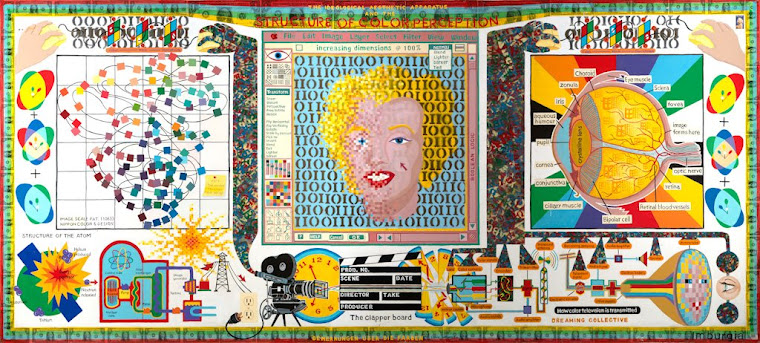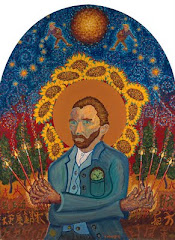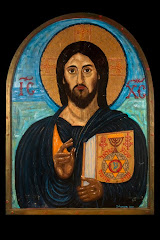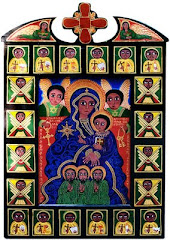*** Klediments: From my spiritual director, Rabbi Mordechi Rosenbaum: ‘While Pharisees were fighting over theology, prostitutes were falling at the Savior's feet and slipping into the kingdom of God on their tears.’
***" "Mercying"
Perhaps my favorite part of Pope Francis’s most famous recent interview was the neologism he created in this sentence: “Jesus saw a publican, and since he looked at him with feelings of love and chose him, he said to him, ‘Follow me.... I think the Latin gerund miserando is impossible to translate in both Italian and Spanish. I like to translate it with another gerund that does not exist: misericordiando [“mercy-ing”]."
Mercying. Perhaps used in a sentence this way?: Mercying the unclean woman who was inhabited by seven devils, Jesus took her in his arms and they drank wine and they cried and laughed and danced in the desert under the night sky. Sometimes in their dance Jesus would fling the woman towards heaven and she would spin in the sky and sparks would shoot from her body like electric stars. Then he would draw her down, calling to her by her secret names and she would slowly whirl back down to the earth and her beloved. And so even the devils were mercied into grace and the woman was set free.
*** “God Sees.”
Rabbi Ben: You don't think God sees?
Judah: God is a luxury I can't afford.
(From Woody Allen’s, “Crimes and Misdemeanors”).
I posed this question on Facebook late last saturday night:
“Much is written about ‘The Dark Nights of the Soul.’ Perhaps more needs to be written about the dark nights of the flesh? I pray for just enough grace that I may at least be counted among the sparrows.”
I received some thoughtful and challenging responses. I know that I have several friends that also struggle with painful physical/spiritual/psychological infirmities that keeps them awake some nights and I will keep you all in my prayers. But when my heart is inflamed and I can’t lie down and I must sit up in a chair all night, and there is too much pain for reading or even TV, I sit in the darkness for hours listening to my heart beating so erratically. Sometimes, when there are long gaps between heart beats I see slight zips of light flashes and subtle changes and movement in the darkness. Maybe it’s just a momentary lack of oxygen but sometimes I like to think that those flashes are tiny angels, maybe the spirits of birds or dragonflies or babies who only lived for a few seconds in their mother's womb.
In the dark nights what does it mean that “God sees?”
Matthew 10: 29. Are not two sparrows sold for a penny? Yet not one of them will fall to the ground apart from the will of your Father.
And yet we fall. The parable of the sparrows, as with all of Jesus’ parables, obscures as much as it reveals. Similar to my oblique anguished facebook post at midnight when most of my fb friends were peacefully asleep. It was sent to all, but only understood by a few. Like the difference between 2nd Samuel chaps. 13 and 14 and the novel “Absalom Absolom” by W. Faulkner. Some will already know what I mean (but even more blessed are those who do not). Our new Pope Francis is quite a master of revealing/obscuring as his recent interview demonstrates. He says: “Only in narrative form do you discern, not in a philosophical or theological explanation....The mystical dimension of discernment never defines its edges and does not complete the thought. The Jesuit must be a person whose thought is incomplete, in the sense of open-ended thinking. There have been periods in the Society in which Jesuits have lived in an environment of closed and rigid thought, more instructive-ascetic than mystical: this distortion of Jesuit life gave birth to the Epitome Instituti.”
All that is to say, that in the dark nights, as the pain-killers wear off (but of course they don’t *kill* pain, drugs only use our own god-like capacity for imagining paradise to deceive us) it’s best to not over-think the parables, and leave the edges undefined (has Pope Francis been reading Of Grammatology?). PF has also apparently adopted the motto of Pope John XXIII, ‘See everything; turn a blind eye to much; correct a little.’ Did he learn that from the Holy Spirit too, or from his mother, or is that an institutionalized way of spinning the gospel of the falling sparrows? Let me prescribe to anyone who struggles to understand this parable and who also suffers from painful sleepless nights, to study Woody Allen’s (perhaps) greatest film, and one of my favorites, “Crimes and Misdemeanors” (maybe the only film with a character patterned after Heidegger?).
Then again, maybe there are more helpful readings one could reflect on in your dark night. like this from Matthew Fox in “Original Blessing” : “Facing the darkness, admitting the pain, allowing the pain to be pain, is never easy. This is why courage – big-heartedness – is the most essential virtue on the spiritual journey. But if we fail to let pain be pain – and our entire patriarchal culture refuses to let this happen – then pain will haunt us in nightmarish ways. We will become pain’s victims instead of the healers we might become.” Of course, that sort of thing always reads better in the sunshine and when it’s about someone else’s pain. Still, once one surrenders to the proposition that “God sees,” that is only the beginning of a long journey. Perhaps we’all have gotten so caught up up in the narrative of king David and and his son Absolom that we forgot about Tamar? Does God see Tamar? Do we?
And so we fall
But the god of the sparrows
Falls with us
Falling first before
Gravity
Or it’s theory
Falls with us
Not instead
Not hardest
Some might have
Thought “jumped!”
Others “pushed”
We crash and shard
God, sparrow, and I
A mash of smithereens
But even
Smithereens
May fly
Much obliged.














No comments:
Post a Comment